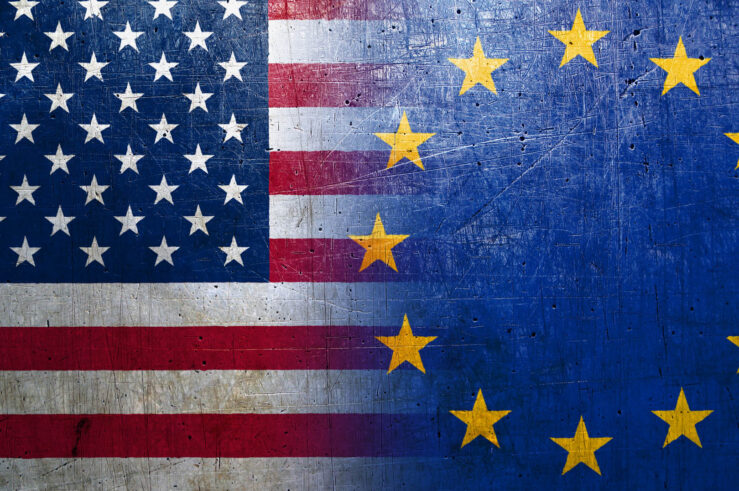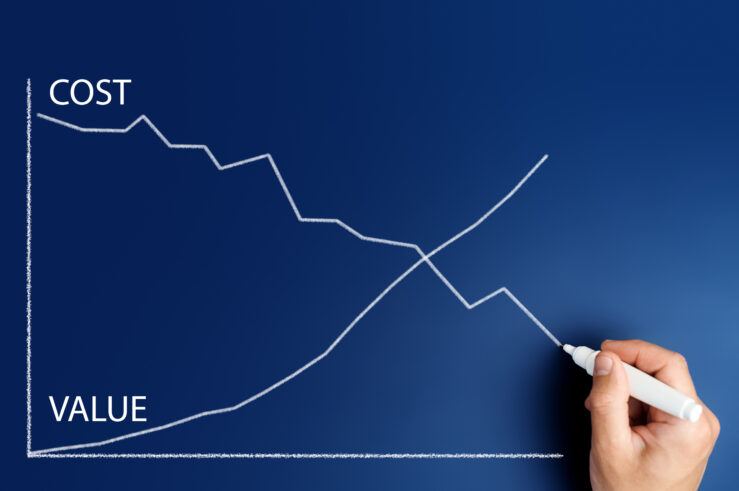Showing results for: “premium natural and organic”
FCC’s Digital-Discrimination Rules: Bridging the Divide or a Bridge Too Far?
The Federal Communications Commission’s (FCC) recently enacted rules to prevent so-called “digital discrimination” in broadband access are facing a significant legal challenge in the 8th U.S. Circuit Court of Appeals. Earlier this week, the U.S. Justice Department and the FCC submitted their brief on the matter. Now that the parties have made their “opening arguments” ... FCC’s Digital-Discrimination Rules: Bridging the Divide or a Bridge Too Far?
Whatcha Gonna Do When the Well Runs Dry?
As the U.S. House Energy and Commerce Subcommittee on Oversight and Investigations convenes this morning for a hearing on overseeing federal funds for broadband deployment, it bears mention that one of the largest U.S. broadband-subsidy programs is actually likely run out of money within the next year. Writing in Forbes, Roslyn Layton observes of the Affordable Connectivity Program ... Whatcha Gonna Do When the Well Runs Dry?
What Transmission Markets Can Learn from the FCC’s Pole-Attachment Problem
Large portions of the country are expected to face a growing threat of widespread electricity blackouts in the coming years. For example, the Western Electricity Coordinating Council—the regional entity charged with overseeing the Western Interconnection grid that covers most of the Western United States and Canada—estimates that the subregion consisting of Colorado, Utah, Nevada, and ... What Transmission Markets Can Learn from the FCC’s Pole-Attachment Problem
How US and EU Competition Law Differ
U.S. and European competition laws diverge in numerous ways that have important real-world effects. Understanding these differences is vital, particularly as lawmakers in the United States, and the rest of the world, consider adopting a more “European” approach to competition. In broad terms, the European approach is more centralized and political. The European Commission’s Directorate ... How US and EU Competition Law Differ
The Road to Antitrust’s Least Glorious Hour
Things are heating up in the antitrust world. There is considerable pressure to pass the American Innovation and Choice Online Act (AICOA) before the congressional recess in August—a short legislative window before members of Congress shift their focus almost entirely to campaigning for the mid-term elections. While it would not be impossible to advance the ... The Road to Antitrust’s Least Glorious Hour
Technology Mergers and the Market for Corporate Control
In recent years, a growing chorus of voices has argued that existing merger rules fail to apprehend competitively significant mergers, either because they fall below existing merger-filing thresholds or because they affect innovation in ways that are purportedly ignored. These fears are particularly acute in the pharmaceutical and tech industries, where several high-profile academic articles ... Technology Mergers and the Market for Corporate Control
FTC-DOJ RFI on Merger Guidelines: The Agencies Should Proceed with Caution
The Jan. 18 Request for Information on Merger Enforcement (RFI)—issued jointly by the Federal Trade Commission (FTC) and the U.S. Justice Department (DOJ)—sets forth 91 sets of questions (subsumed under 15 headings) that provide ample opportunity for public comment on a large range of topics. Before chasing down individual analytic rabbit holes related to specific ... FTC-DOJ RFI on Merger Guidelines: The Agencies Should Proceed with Caution
EU’s Compromise AI Legislation Remains Fundamentally Flawed
European Union (EU) legislators are now considering an Artificial Intelligence Act (AIA)—the original draft of which was published by the European Commission in April 2021—that aims to ensure AI systems are safe in a number of uses designated as “high risk.” One of the big problems with the AIA is that, as originally drafted, it ... EU’s Compromise AI Legislation Remains Fundamentally Flawed
Attention Markets: They Know Them When they See Them
A raft of progressive scholars in recent years have argued that antitrust law remains blind to the emergence of so-called “attention markets,” in which firms compete by converting user attention into advertising revenue. This blindness, the scholars argue, has caused antitrust enforcers to clear harmful mergers in these industries. It certainly appears the argument is ... Attention Markets: They Know Them When they See Them
Concentration Study Further Undermines Narrative that US Competition Has Sharply Declined
A new scholarly study of economic concentration sheds further light on the flawed nature of the Neo-Brandeisian claim that the United States has a serious “competition problem” due to decades of increasing concentration and ineffective antitrust enforcement (see here and here, for example). In a recent article, economist Yueran Ma—assistant professor at the University of ... Concentration Study Further Undermines Narrative that US Competition Has Sharply Declined
Making Rules vs Ruling
In an effort to fight inflation, the Federal Open Market Committee raised interest rates to 20% over the course of 1980 and 1981, triggering a recession that threw more than 4 million Americans, many in well-paying manufacturing jobs, out of work. As it continues to do today, the committee met in secret and explained its ... Making Rules vs Ruling
The Market Challenge to Populist Antitrust
The wave of populist antitrust that has been embraced by regulators and legislators in the United States, United Kingdom, European Union, and other jurisdictions rests on the assumption that currently dominant platforms occupy entrenched positions that only government intervention can dislodge. Following this view, Facebook will forever dominate social networking, Amazon will forever dominate cloud ... The Market Challenge to Populist Antitrust














